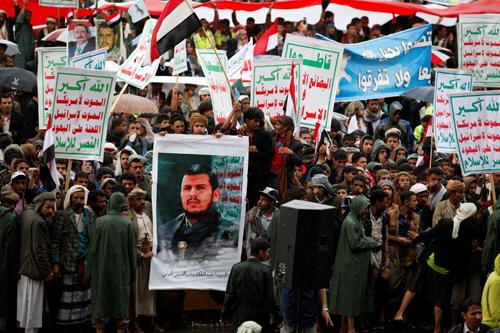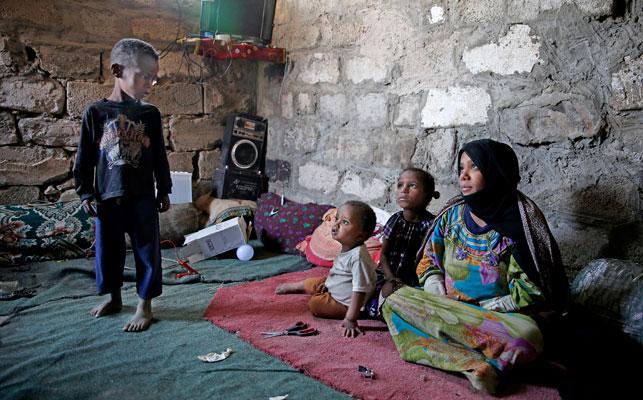You are here
Yemen gov’t delegates quit talks until rebels accept deal
By AFP - Aug 01,2016 - Last updated at Aug 01,2016

KUWAIT CITY — Yemen’s government delegation to peace talks were leaving Kuwait on Monday after the rebel side rejected a draft peace plan proposed by the United Nations, its representatives said.
“We now leave Kuwait... but are not quitting the consultations and not ending them before August 7,” said the head of the delegation, Foreign Minister Abdulmalek Al Mikhlafi.
He was referring to the end date set by the UN envoy Ismail Ould Cheikh Ahmed for the talks that began April but have so far failed to end Yemen’s conflict.
“We will return any minute... if the other side agrees to sign” the UN proposal, which was accepted by the government but rejected by the rebels, Mikhlafi told reporters at Kuwait Airport.
Government delegation spokesman Mohammed Al Emrani earlier told AFP: “We are leaving today after having completed our part in the talks.”
“The ball is now in the rebels’ court,” he said.
The delegation was returning to Riyadh after informing the UN envoy that it was ready to sign the proposed peace plan, Emrani said.
The Iran-backed Houthi rebels and their allies, former president Ali Abdullah Saleh’s loyalists, rejected the peace plan on Sunday, saying it was incomplete.
“The other party now has the key to make the talks fail or succeed... If they agree to the plan, our delegation will return,” Emrani said.
Mikhlafi lashed out at the rebels for rejecting the peace plan.
“This Houthi-Saleh alliance will never accept any peace deal that does not legitimise their coup,” Mikhlafi said.
The government delegation’s decision to leave host country Kuwait came after a meeting with the UN envoy.
The government delegation had been due to quit negotiations and leave Kuwait on Saturday but cancelled the decision after Ould Cheikh Ahmed presented his draft peace plan.
According to the government, the draft plan calls for the rebels to withdraw from the capital Sanaa and two major cities, hand over heavy arms and return state institutions they seized in September 2014.
The rebels said that first a national unity government must be formed and a new consensus president appointed to oversee the transition.
Yemen, home to what the United States sees as Al Qaeda’s deadliest franchise, descended into chaos after the 2012 ouster of longtime strongman Saleh.
Security deteriorated further after the Houthis swept into Sanaa and pushed south, forcing President Abed Rabbo Mansour Hadi’s government to flee into exile in March last year.
The United Nations says the conflict has killed more than 6,400 people and displaced 2.8 million since then, when a Saudi-led Arab coalition launched a military campaign in support of Hadi.
Related Articles
KUWAIT CITY —Yemen's government delegation was due in Kuwait later Saturday for the resumption of UN-brokered peace talks after obtaining gu
KUWAIT CITY —Yemen's warring parties have discussed forming military and security committees to oversee a transition period aimed at ending
KUWAIT CITY — Yemen's government suspended its participation in talks with Iran-backed rebels Tuesday for the second time this month, the fo
















